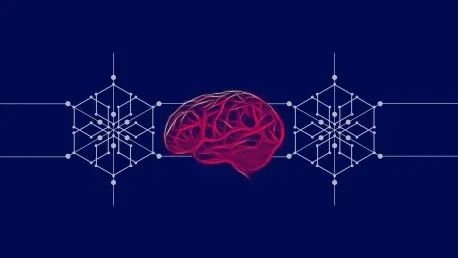In today’s rapidly evolving digital landscape, the management of certificates and machine identities has transitioned from a technical detail handled by IT personnel to a strategic priority for Chief Information Officers (CIOs). Traditionally, these tasks were viewed as routine elements of IT’s responsibilities; however, various emerging challenges have highlighted the need for a more holistic approach.
The Shift Towards Strategic Certificate Management
The rise of certificate authority failures, container sprawl, and the advent of post-quantum cryptography have necessitated the strategic involvement of CIOs in managing Public Key Infrastructure (PKI) and cryptographic frameworks. PKI has become increasingly relevant in the broader narrative of organizational security and compliance strategies. Machine identities, which authenticate non-human entities such as AI tools and workloads, play a critical role in modern infrastructures, including the Industrial Internet of Things (IIoT) and Kubernetes ecosystems.
Email Authentication Standards: A Key Focus
A significant area CIOs must address is the implementation of robust email authentication standards like SPF, DKIM, and DMARC. These standards are crucial in enhancing email security and minimizing phishing risks, which remain pervasive threats to organizational security. Ensuring adherence to these protocols helps safeguard sensitive communication channels and protect against fraudulent activities.
The Machine Identity Explosion
Organizations are experiencing an explosion in the number of machine identities, presenting a formidable management challenge. For large enterprises, the number of machine identities could surge to as many as 1.3 million by 2025. This rapid growth is exacerbated by the inadequacy of manual management methods, which cannot scale effectively. The traditional PKI systems often struggle to keep pace with the rapid adoption of cloud services and DevOps practices, where speed is frequently prioritized over security.
Challenges in Certificate Rotation and Renewal
Another critical aspect for CIOs is the management of certificate rotation and renewal processes. Industry trends suggest that the validity period of certificates may be reduced from years to mere months, imposing the need for rapid renewals. This shift requires a proactive and automated approach to certificate lifecycle management, ensuring that organizations remain secure and compliant with evolving standards.
Cross-Functional Teams and Automated Solutions
The growing recognition among CIOs of the necessity for cross-functional teams has highlighted the demand for automated, scalable solutions to manage certificates and machine identities effectively. The lack of mature, standardized tools in the industry has hindered governance and deployment, making it imperative for organizations to adopt innovative strategies.
Addressing Persistent Certificate Management Issues
Recurrent issues such as outdated and poorly managed certificates have led to significant security breaches, exemplified by the notable Equifax data breach caused by an expired certificate. These incidents underline the importance of maintaining up-to-date records and ensuring continuous discovery and auditing processes replace one-off inventories.
Preparing for Future Trends
Future trends indicate a push toward shorter certificate lifespans as technology continues to evolve rapidly. CIOs must spearhead efforts to establish comprehensive machine identity strategies that involve governance and accountability, continuous discovery and auditing, and planning for the post-quantum transition. Recognizing the arrival of quantum computing, organizations need to prepare for new encryption standards well in advance.
Balancing Automation with Understanding
In today’s fast-paced digital world, managing certificates and machine identities has shifted from being a technical task managed by IT staff to a strategic concern for Chief Information Officers (CIOs). Several emerging challenges have underscored the importance of a comprehensive approach to this area. The evolving cyber threat landscape, compliance requirements, and the increased complexity of IT environments necessitate that certificate and machine identity management be integrated into broader organizational strategies.
CIOs now recognize that properly managing these elements is not just about preventing outages and inefficiencies—it also play a crucial role in safeguarding the organization against security breaches. The rise in digital certificates and elevated use of machine identities require a meticulous strategy, ensuring both operational integrity and robust security. This approach allows companies to maintain business continuity, protect sensitive data, and comply with regulatory demands. In the evolving digital age, the significance of sound certificate and machine identity management cannot be overstated.









